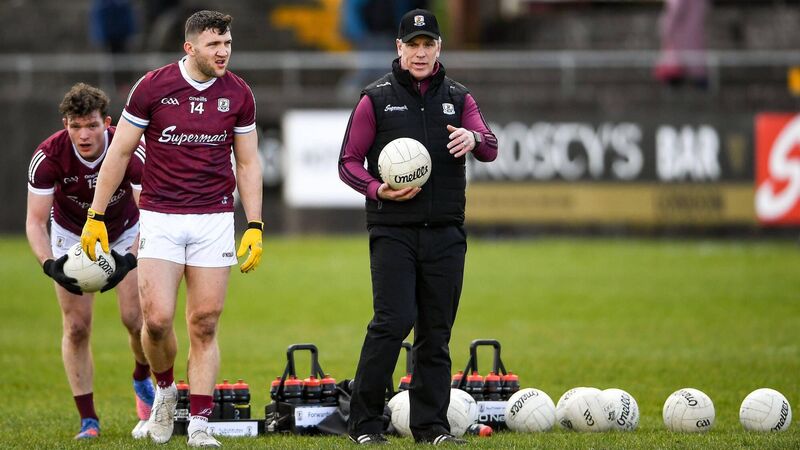Gary Brennan: Who's more upwardly mobile, Derry or Galway?

Galway manager Padraic Joyce with Damien Comer and Owen Gallagher before the the Allianz Football League Division 2 match with Clare at Tuam Stadium. Picture: Ray Ryan/Sportsfile
AS I made my way out of Tuam Sadium after Galway’s win over Clare last Sunday, I couldn’t help but overhear two natives discussing their prospects for the year.
They may have been after securing their fifth win in a row and remain the only team with a 100% record in Division Two of the League, but standards here were higher than mere the issue of promotion - it was the same age-old question that dominated the minds of Galway supporters back through the years.








